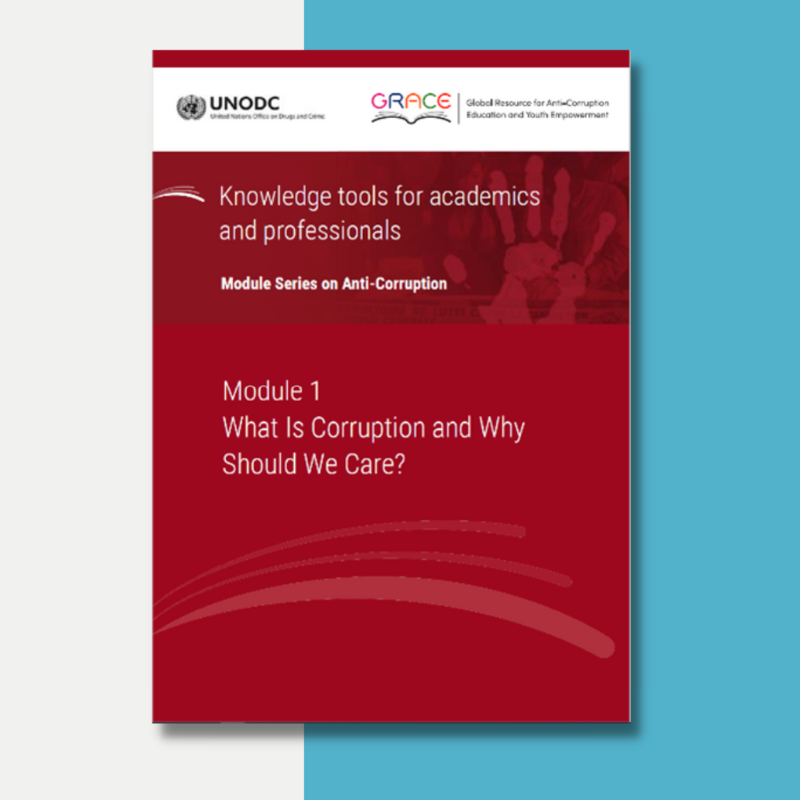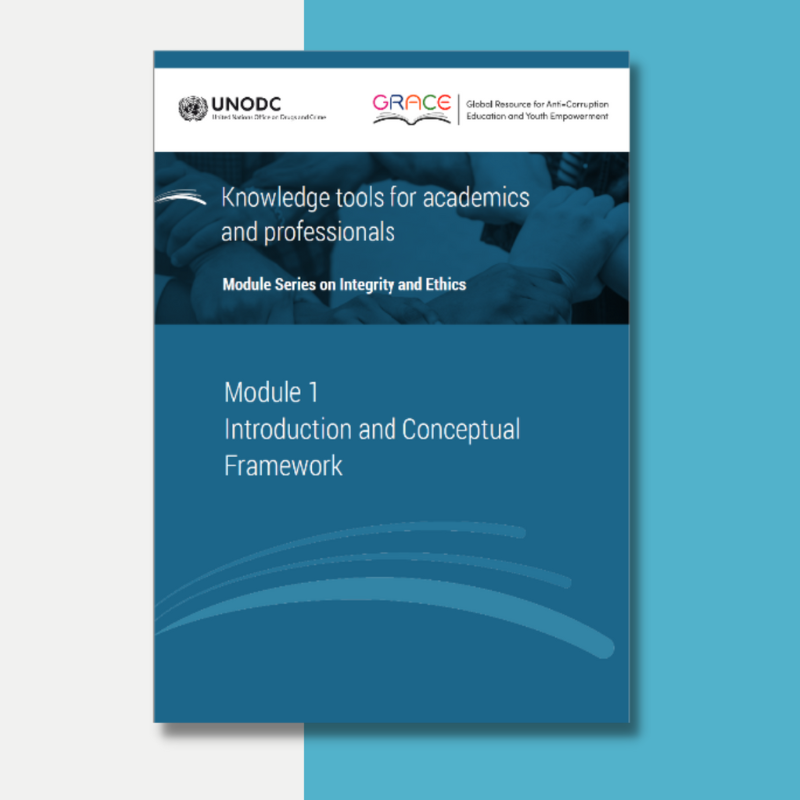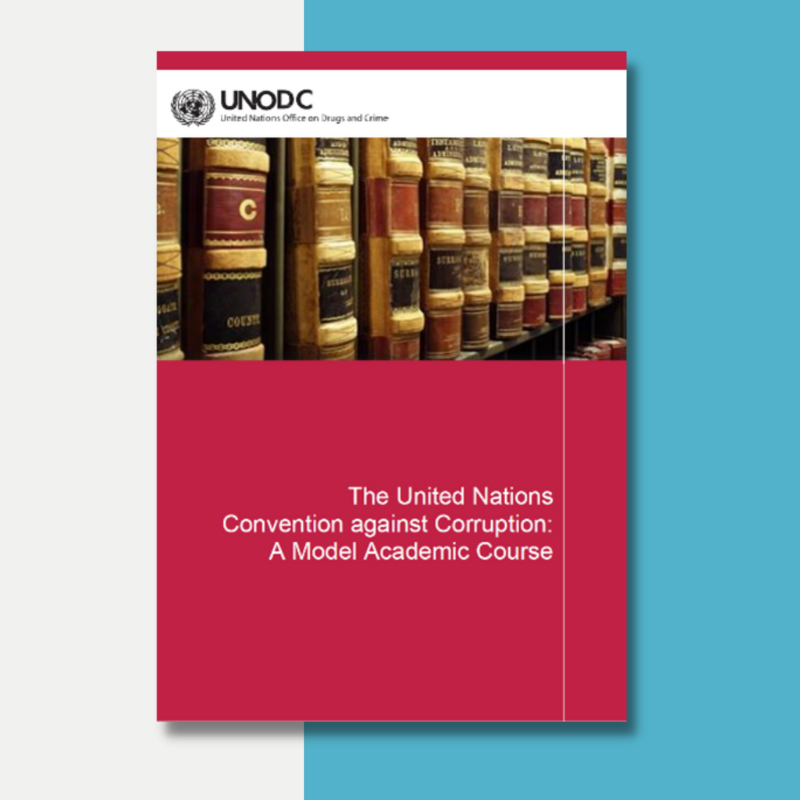The hub offers various knowledge tools and products that university lecturers and trainers can use in their academic courses and professional trainings to transmit knowledge and create a deeper understanding of corruption- related issues, with a focus on integrity and ethics. The United Nations Office on Drugs and Crime (UNODC) knowledge tools and products are designed for use as either stand-alone teaching resources, or as a means of enhancing existing academic courses and professional trainings.
UNODC University Module Series on Anti-Corruption
 |
Corruption is one of the most serious global threats of our time. It has disastrous effects on the economy and environment and is linked to a crisis of democracy and rising inequalities. Combating this complex phenomenon requires multiple and simultaneous approaches, including education programmes that empower future generations to resist and prevent corruption. To that end, UNODC has developed a series of Anti-Corruption University Modules, which lecturers can use as a basis for teaching in universities and academic institutions across the world. To increase their effectiveness, the modules connect theory to practice, encourage critical thinking, and use innovative interactive teaching approaches such as experiential learning and group-based work. The modules are multi-disciplinary and easily adaptable to different local and cultural contexts. Each module is designed as a three-hour class but also provides guidelines on how to develop it into a full course. |
Module 1: What Is Corruption and Why Should We Care?
Module 2: Corruption and Good Governance
Module 3: Corruption and Comparative Politics
Module 4: Public Sector Corruption
Module 5: Private Sector Corruption
Module 6: Detecting and Investigating Corruption
Module 7: Corruption and Human Rights
Module 8: Corruption and Gender
Module 9: Corruption in Education
Module 10: Citizen Participation in Anti-Corruption
Module 11: Corruption, Peace and Security
UNODC University Module Series on Integrity and Ethics
 |
Building a culture of lawfulness starts with strengthening our ethical values and the ability to act upon them. To that end, UNODC developed a series of Integrity and Ethics Modules, which lecturers can use as a basis for teaching in universities and academic institutions across the world. The modules seek to enhance students' ethical awareness and commitment to acting with integrity and equip them with the necessary skills to apply and spread these norms in life, work and society. To increase their effectiveness, the modules connect theory to practice, encourage critical thinking, and use innovative interactive teaching approaches such as experiential learning and group-based work. The modules are multi-disciplinary and can be integrated as ethics components in non-ethics courses. By focusing on common universal values, the modules leave room for diverse perspectives and lecturers can easily adapt them to different local and cultural contexts. Each module is designed as a three-hour class but also provides guidelines on how to develop it into a full course. |
Module 1: Introduction and Conceptual Framework
Module 2: Ethics and Universal Values
Module 3: Ethics and Society
Module 4: Ethical Leadership
Module 5: Ethics, Diversity and Pluralism
Module 6: Challenges to Ethical Living
Module 7: Strategies for Ethical Action
Module 8: Behavioural Ethics
Module 9: Gender Dimensions of Ethics
Module 10: Media Integrity and Ethics
Module 11: Business Integrity and Ethics
Module 12: Integrity, Ethics and Law
Module 13: Public Integrity and Ethics
Module 14: Professional Ethics
